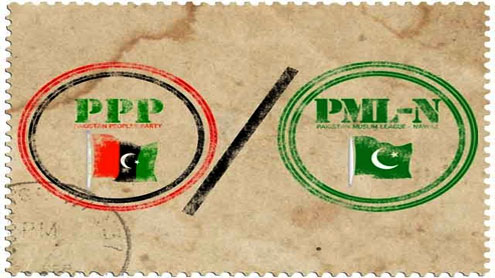 After the last round of Pak-US dialogue in July this year, another round of talks is set to take place on October 22. It is for this reason that President Zardari, Prime Minister Gilani and Army Chief Ashfaq Kayani met recently at the Presidency to discuss and deliberate the issues that will be tackled during the talks. These include the drone strikes and reimbursement of coalition fund arrears amongst others but teeming below the surface is an issue that is going to dominate the dialogue. That issue is the increased friction between the two countries and the trust deficit that continues to grow wider.Recent events such as the US’s delayed realisation that the military/intelligence establishment was playing a dual game when it came to the Afghan Taliban and their safe havens inside North Waziristan (NW), the ‘hot pursuit’ incident where NATO helicopters killed three FC troops, the closing of the Torkham border and the incendiary torching spree of the NATO convoys that were parked in Pakistan or en route to Afghanistan have caused the gulf to grow even wider.
After the last round of Pak-US dialogue in July this year, another round of talks is set to take place on October 22. It is for this reason that President Zardari, Prime Minister Gilani and Army Chief Ashfaq Kayani met recently at the Presidency to discuss and deliberate the issues that will be tackled during the talks. These include the drone strikes and reimbursement of coalition fund arrears amongst others but teeming below the surface is an issue that is going to dominate the dialogue. That issue is the increased friction between the two countries and the trust deficit that continues to grow wider.Recent events such as the US’s delayed realisation that the military/intelligence establishment was playing a dual game when it came to the Afghan Taliban and their safe havens inside North Waziristan (NW), the ‘hot pursuit’ incident where NATO helicopters killed three FC troops, the closing of the Torkham border and the incendiary torching spree of the NATO convoys that were parked in Pakistan or en route to Afghanistan have caused the gulf to grow even wider.
Pakistan and the US have found themselves at a critical juncture in their oft fragile, seldom problem-free relationship. A recent statement from Chairman Joint Chiefs of Staff Admiral Mike Mullen saying that Kayani has agreed to mount a major offensive in NW to tackle the Haqqani network of Afghan militants must be seen as a welcome change in Pakistan’s attitude by Washington but it is still weary of the military’s dual policy when it comes to NW. Selective targeting of the militants is not what the US is demanding and the military will need to reject its support for militant groups now. Pakistan, on the other hand, is weary of the US’s constant attempts at brokering a post withdrawal deal with the Afghan Taliban and Karzai sans Pakistan. Various such attempts by the US have been thwarted by Pakistan, the arrest of Mullah Baradar being one such strategy. This is where the US must realise that for all the damage Pakistan has withstood for its strategic depth in Afghanistan, it will not agree on anything less than a central role in all talks relating to post-US Afghanistan.All diplomatic niceties and cosmetic issues aside, these talks are monumental in addressing the severe trust deficit that exists. If the gulf is not bridged, Pakistan has a lot more to lose than the US. If the incidents of hot pursuit have taught us anything, it should be to remain cautious and to abandon our adventurism as much worse could happen – Dailytimes











